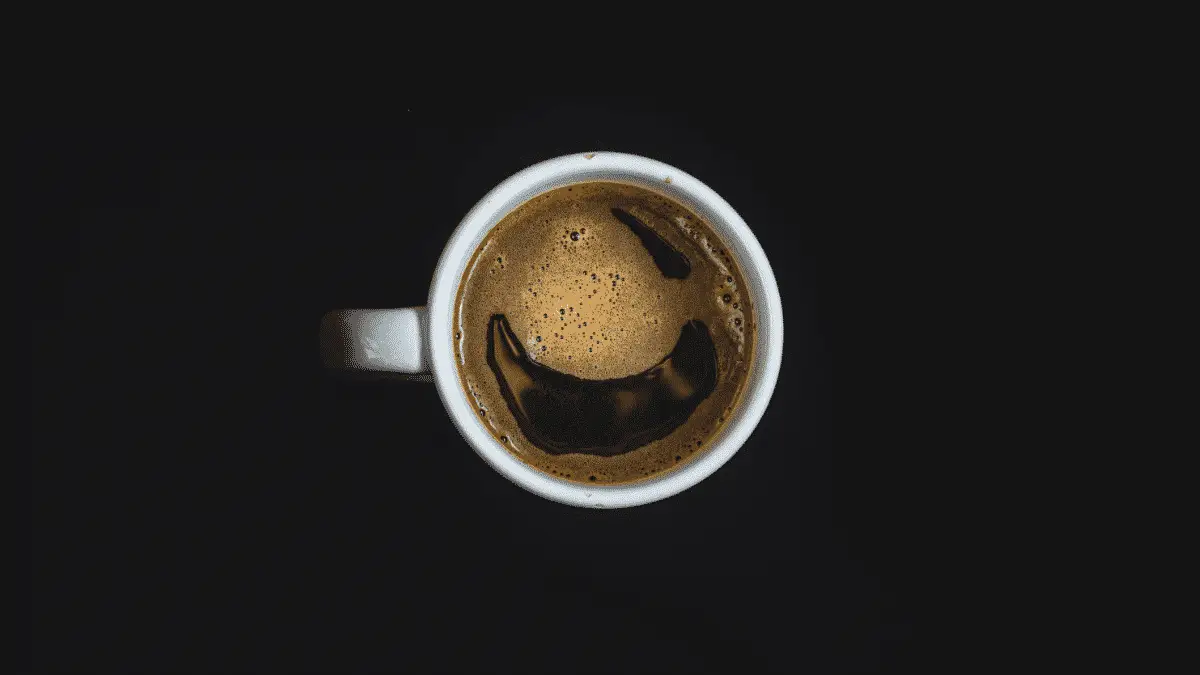For most people, coffee should be black and bitter. Others prefer their beverage sweet and indulgent, a proper treat.
Whether your preferences are, bitterness is a natural element of your coffee, which can be fixed with the right amount of sugar. Nevertheless, sometimes your coffee may be too bitter, or even taste dreadful. This can be due to the roast type, the coffee variety, or a wrong preparation method.
What makes your coffee bitter and how to change its taste? Let’s find out together!
Bitterness in coffee: is it bad?
If your coffee is bitter, it doesn’t mean that something went wrong during the brewing process.
Coffee beans contain naturally bitter elements, such as chlorogenic acid lactones, which are usually balanced out by its natural acidity. Different coffee varieties contain varying levels of chlorogenic acid, which breaks down into chlorogenic acid lactones as a result of the roasting process.
This means that bitterness is a natural feature of coffee, rather than a negative aspect of it. However, coffee can be too bitter when over-extracted or if of poor quality.
If you are a fan of bitter coffee you can buy Robusta, which is a naturally bitter variety.
What makes coffee bitter?
Sugar can make your coffee sweet and smooth. But what gives it that bitter taste in the first place? There are three many factors which can significantly influence the flavor of your drink.
Roast type
Darkly roasted coffees are the most bitter ones. This is due to the high temperatures used to roast the coffee, which end up burning the beans.
In many cases, coffee is roasted darkly to alter its taste and disguise the dull flavor of low-grade beans. Other dark roasting profiles, such as Italian and French roasts, are naturally bitter. In these cases, coffee beans are roasted until the natural oils inside the coffee come to the surface, burning the bean, which is completely dehydrated.
Lighter roasts do not only taste better, but they can have more positive effects on our health.
Preparation method
Coffee beans are soluble, meaning that water has the power to extract all their flavor. This process has different stages and, if you don’t pay attention to it, it is easy to allow your coffee to over-extract, which will make it bitter.
The first stage of this process involves natural acids, followed by natural sugars. The third step is the most important one, as this is when the extraction of the bitter compounds of coffee occurs. The perfect cuppa should have an extraction which is between 18 to 22 percent of the soluble materials of the beans. The higher this percentage, the bitter your coffee will be.
Coffee variety
The two main varieties of coffees are Coffea Arabica and Coffea canephora, better known as Robusta. As the names suggest, Robusta is naturally more bitter than Arabica because of the higher concentrations of chlorogenic acids. When roasted at high temperatures, the acid turns into chlorogenic acid lactones, which are particularly bitter.
Robusta contains almost 50% less the amount of sucrose than any other coffee variety and 60% fewer fats. This dry and bitter coffee is also cheaper than Arabica. This is the reason why it is very easy to find it in instant coffee jars or pods for automatic machines.
Many believe that caffeine is the element which makes coffee bitter, but this isn’t completely true.
What are the different flavors of coffee?
Although bitterness may be the primary flavor picked up by your taste buds, coffee has a variety of flavors which contribute to creating the perfect cuppa. Understanding these different facets is essential to individuate the coffee variety which meets your personal preferences.
Particular varieties of coffee may have additional aromas, such as fruity, sour, or mellow. In these cases, the extraction or brewing process may differ. They may be found at specialized coffee shops, where proper coffee specialists can guide you through a world made of new, exciting flavors.
The best way to recognize all the different flavors that coffee can have is to train your palate. Of course, you should only use the highest qualities of coffee beans, such as Arabica. After a few espresso (or Americano, if you’re feeling bold), you should become a true expert in this field. Just a quick word of advice: don’t drink too much coffee before going to bed, unless you don’t like to sleep tight!
Bitterness
Many consider bitterness an unpleasant flavor, which is picked up on the top of your tongue and the back of the mouth. However, when perfectly balanced, bitterness can bring a genuinely distinctive quality to your drink.
Darker roasted coffees are usually the most bitter, because of their levels of chlorogenic acids.
Acidity
Acidity is often confused with bitterness, despite the differences between these two flavors. Acidity is picked up on the sides of your tongue and, when controlled, it can give a strong personality to your drink.
Arabica coffee, which grows at a particular altitude, is one of the most acidic varieties, particularly appreciated by coffee specialists.
Sweetness
You don’t necessarily need to add several teaspoons of sugar into your coffee to make it sweeter. In fact, you can make your drink’s taste a bit gentler just by swirling it around in its container before pouring it into your cup. By doing this, coffee will incorporate more air, bringing out its natural sweetness. It goes without saying that this is the perfect drink to enjoy a sweet treat, but without the extra calories.
Saltiness
Saltiness is not the flavor you would associate with the perfect coffee, but we are ready to make you change your mind. Italians can confirm how a certain saltiness can enhance your espresso… but don’t add actual salt to your cup!
In fact, the salty taste is achieved during the extraction process and you can try this at home. Just make a quick espresso and taste it at 5-second intervals, just like Italians do while they’re enjoying their coffee break. You will immediately be taken aback by a certain saltiness, and the flavor will then become less pronounced as the coffee gets colder.
Common Reasons for bitter coffee
If your coffee is too bitter, there are a few usual suspects which might be responsible for it. Before you throw away yet another morning cup because it doesn’t taste great, let’s take a look at the potential culprits, so that you can learn from your mistakes and discover the secret for the perfect coffee.
Time
Coffee beans are water soluble, meaning that they will keep releasing their flavor while immersed in water. It does not surprise that over-cooking is one of the most common mistakes one can make when brewing coffee. You can check the steeping time on the instructions written on the coffee bag, or experiment until you find the perfect one for your taste. Don’t forget to set a timer!
Water Temperature
Many coffee lovers brew their coffee in boiling water, but this is one of the worst things you can do to make your cuppa. Boiling temperature (100 C, or 212 F), is too hot and will end up over-cooking your coffee. The ideal temperature should be just below boiling.
Coffee Quality
The problem with cheap coffee is that it always tastes bad. To avoid bitter and burnt coffee beans, we recommend investing in premium coffee, especially if you are passionate about this beverage and you drink several cups every day.
Coffee/Water Ratio
Adding too much coffee won’t do any good to your beverage. The only thing you will get is a bitter coffee, too strong to be drunk without being first diluted with additional water. Always follow the recommended coffee to water ratio, based on your brewing process. For example, if you are using an average French Press, you should only add 1.5-2 tbsp of coffee.
Grind
If you grind your coffee too finely, you may over-extract the aroma. This can cause an over-cooking aftertaste when your coffee is brewed, and a very bitter beverage. The only way to avoid this is to check you always use the correct grind level, which will depend on the brewing method you chose.
Unclean Equipment
Whether you are using a French Press or any other glass container, you should always wash it well after every use. Any leftovers from your last brew will make your new cups taste bitter and will add a stale aftertaste to every drink you brew.
How do you make your coffee less bitter?
Let’s be honest: you can’t win them all. Sooner or later, even the best coffee expert will brew a cup that doesn’t taste right. It may depend on the quality of coffee beans you used, the machine, or the water. However, the last thing you might want to do is to waste your cuppa.
If your drink is too bitter, there are several ways to make it more drinkable. From adding sugar to whisking it slowly with a spoon to incorporate more air, you can always find a way to save your beverage.
Bitter but Delicious
Darkly roasted coffee is the most bitter variety, due to the roasting process required to extract your favorite cuppa.
The coffee variety and the roasting process it undergoes are only factors that can influence the final taste of your beverage. Besides, sometimes it takes one single mistake during the brewing process to jeopardize your drink.
On the other hand, as we have learned, bitter coffee is not necessarily a bad coffee. What really matters is how you like to enjoy your coffee break.

